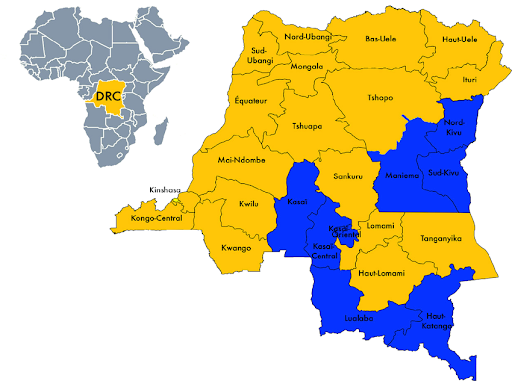The Democratic Republic of the Congo (DRC) is one of the world’s most mineral-rich countries, with vast cobalt, copper, gold, and diamond reserves. However, rather than benefiting the people, these resources have become tools of political control, fueling corruption, conflict, and violence.
A Land Rich in Resources
Congo holds about 70% of the world’s cobalt reserves, a critical mineral for electric vehicle batteries and electronics. Despite the country’s mineral wealth, most Congolese citizens remain in poverty, while political leaders leverage these resources for power and personal gain.
Corruption in Mining
Congo’s leaders have used their control over the mining sector to maintain power. They often strike deals with foreign companies, receiving bribes, kickbacks, or stakes in mining operations. For example, former President Joseph Kabila’s government made opaque deals with foreign firms that enriched the political elite while offering little benefit to the public.
Conflict and Violence
The DRC’s mineral wealth has also fueled violence, particularly in the east, where armed groups fight for control of mining areas. These groups exploit child labor and forced labor to extract resources, furthering the cycle of exploitation. Leaders often use violence as a means to consolidate power, portraying themselves as necessary for maintaining stability.
Global Influence
Foreign countries and corporations play a significant role in Congo’s mining industry. Nations like China, the U.S., and Belgium benefit from access to Congo’s resources, often overlooking the associated human rights abuses. Chinese companies, for instance, have invested heavily in infrastructure in exchange for minerals, but as stated above, these investments benefit Congo’s elite rather than the general population.
The Role of the International Community
International efforts to promote transparency and end the trade in “conflict minerals” have made limited progress. Laws like the U.S. Dodd-Frank Act require companies to disclose whether they source minerals from conflict zones, but enforcement is weak, and many continue to profit from Congo’s resources without addressing the underlying issues.
For Congo to truly benefit from its mineral wealth, it needs political reforms, improved governance, and accountability in the mining sector. The international community must play a stronger role in ensuring companies and leaders are held accountable. Until these changes occur, Congo’s minerals will remain a tool for political control rather than a source of national prosperity.
Dr. Justin Bisimwa Mudekereza, in his book Critical Minerals, Dangerous Ties: Can Trump’s Deal and Democracy in the DRC Work Perfectly?, urges the international community’s greater involvement in holding both Congolese leaders and foreign companies accountable for their actions. Mudekereza calls for sustainable development practices in Congo’s mining industry to ensure that they do not destroy the environment or perpetuate cycles of violence.
Until a new system of governance is established—one that prioritizes the well-being of its citizens rather than the enrichment of a select few—the trade of minerals will continue to be a tool of political control rather than a source of national prosperity. Read Dr. Justin Bisimwa Mudekereza’s thorough analysis on the topic in Critical Minerals, Dangerous Ties: Can Trump’s Deal and Democracy in the DRC Work Perfectly?




